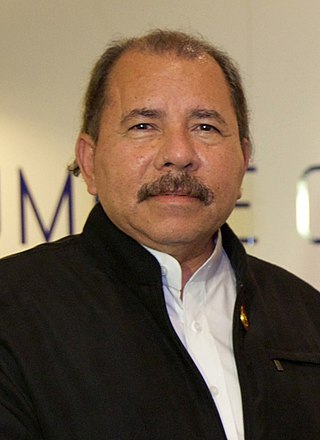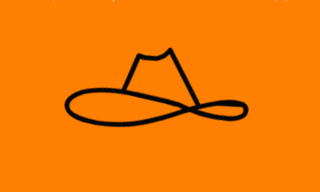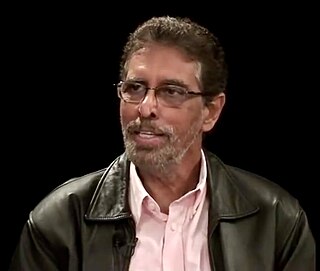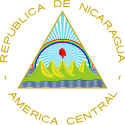
José Daniel Ortega Saavedra is a Nicaraguan politician serving as President of Nicaragua since 2007. Previously he was leader of Nicaragua from 1979 to 1990, first as coordinator (1981–1985) of the Junta of National Reconstruction, and then as President of Nicaragua (1985–1990).
Nicaragua is a nation in Central America. It is located about midway between Mexico and Colombia, bordered by Honduras to the north and Costa Rica to the south. Nicaragua ranges from the Caribbean Sea on the nation's east coast, and the Pacific Ocean bordering the west. Nicaragua also possesses a series of islands and cays located in the Caribbean Sea.

Nicaragua is a presidential republic, in which the President of Nicaragua is both head of state and head of government, and there is a multi-party system. Executive power is exercised by the government.

The Sandinista National Liberation Front is a socialist political party in Nicaragua. Its members are called Sandinistas in both English and Spanish. The party is named after Augusto César Sandino, who led the Nicaraguan resistance against the United States occupation of Nicaragua in the 1930s.

Enrique José Bolaños Geyer was a Nicaraguan politician who served as President of Nicaragua from 10 January 2002 to 10 January 2007.

The Constitutionalist Liberal Party is a political party in Nicaragua. At the Nicaraguan general election of 5 November 2006, the party won 25 of 92 seats in the National Assembly. However, the party suffered a devastating loss in the 2011 general election, losing 23 seats in the National Assembly.

The Republic of Nicaragua elects on the national level a head of state – the president – and a unicameral legislature. The President of Nicaragua and his or her vice-president are elected on one ballot for a five-year term by the people.

The National Assembly is the legislative branch of the government of Nicaragua founded in January 1985.

The Junta of National Reconstruction was the provisional government of Nicaragua from the fall of the Somoza dictatorship in July 1979 until January 1985, with the election of Sandinista National Liberation Front’s Daniel Ortega as president.

General elections were held in Nicaragua on 5 November 2006. The country's voters went to the polls to elect a new President of the Republic and 90 members of the National Assembly. Daniel Ortega (FSLN) won the election with 37.99% of the vote, Eduardo Montealegre (ALN) trailing with 28.30%, José Rizo (PLC) with 27.1%, Edmundo Jarquín (MRS) with 6.29%, and Edén Pastora (AC) with 0.29%.

The Sandinista Renovation Movement is a Nicaraguan political party founded on 21 May 1995. It defines itself as a democratic and progressive party, made of women and men, which promotes the construction of a Nicaragua with opportunities, progress, solidarity, democracy and sovereignty.

The Independent Liberal Party is a Nicaraguan political party, which separated from Somoza's Nationalist Liberal Party (PLN) in 1944 and took part in the probably fraudulent election of 1947, won by Somoza's favored candidate. The PLI participated in the 1984 election, winning 9.6% of vote for President with its candidate Virgilio Godoy. In 1990 it was part of the National Opposition Union (UNO) - a broad alliance of Sandinista regime opponents - with Virgilio Godoy running as the vice-presidential candidate. UNO won the elections with 54% of the vote. The UNO alliance split in 1993, and in the 1996 elections the PLI, under the candidature of Virgilio Godoy, suffered its worst electoral debacle, receiving only 0.32% of the vote. It joined with Enrique Bolaños' PLC for the 2001 elections, and was part of Montealegre's Nicaraguan Liberal Alliance in the 2006 elections.
General elections were held in Nicaragua on 25 February 1990 to elect the President and the members of the National Assembly. The result was a victory for the National Opposition Union (UNO), whose presidential candidate Violeta Chamorro surprisingly defeated incumbent president Daniel Ortega of the Sandinista National Liberation Front (FSLN). This led to a historic peaceful and democratic transfer of power in Nicaragua.
General elections were held in Nicaragua on 4 November 1984, to elect a president and parliament. Approximately 1.2 million Nicaraguans voted, representing a 75% turnout, with 94% of eligible voters registered. Impartial observers from international groupings such as the European Economic Community, religious groups sent to monitor the election, and observers from democratic nations such as Canada and the Republic of Ireland concluded that the elections were generally free and fair.
In 1979, the Sandinista National Liberation Front (FSLN) overthrew Anastasio Somoza Debayle, ending the Somoza dynasty, and established a revolutionary government in Nicaragua. Following their seizure of power, the Sandinistas ruled the country first as part of a Junta of National Reconstruction. Following the resignation of centrist members from this Junta, the FSLN took exclusive power in March 1981.

General elections were held in Nicaragua on 6 November 2011. The incumbent president Daniel Ortega, won a third term in this election, with a landslide victory.

Edipcia Dubón is Nicaraguan politician and human rights activist. She is a former deputy to the National Assembly of Nicaragua, as a member of the Sandinista Renovation Movement (MRS). She served about five years, from the 2011 general election until July 2016 when she was one of 26 deputies expelled from the Assembly. The incident arose in the months preceding the Nicaraguan general election. The Nicaraguan Supreme Court removed opposition leader of the Independent Liberal Party (PLI) Eduardo Montealegre and decreed that former party vice-president Pedro Reyes Vallejos was the new leader of the PLI. After PLI and allied MRS deputies refused to acknowledge Reyes, viewing him as an puppet for President Daniel Ortega, Nicaragua's Supreme Electoral Council ordered them removed from the National Assembly and empowered Reyes to select their replacements.

General elections were held in Nicaragua on 7 November 2021 to elect the President, the National Assembly and members of the Central American Parliament.

Victor Hugo Tinoco Fonseca is a Nicaraguan politician and former Sandinista guerilla. He was Deputy Minister for Foreign Affairs with the Sandinista National Liberation Front, ambassador to the United Nations and a deputy in the National Assembly. In the late 1990s he grew critical of Daniel Ortega and was expelled from the party in 2005, joining the Sandinista Renovation Movement (MRS) instead and later its successor, the Democratic Renewal Union (Unamos) party. In June 2021, he was part of a wave of arrests of opposition figures, including seven aspiring opposition candidates for president in the 2021 Nicaraguan general election.
Pedro Joaquín Chamorro Barrios is a Nicaraguan journalist and politician. He began his career in journalism working at La Prensa, following the 1978 assassination of its editor, his father, Pedro Joaquín Chamorro Cardenal. Working on the side of the Contras in exile in the 1980s, he returned to the country in 1989 when his mother Violeta Barrios de Chamorro ran for president, and following her election, served as a Nicaraguan ambassador. He later became defense minister. In the 21st century, Chamorro has been a city councilor for Managua and deputy in the National Assembly, also for Managua. On 25 June 2021, he became part of a wave of arrests of opposition and civic figures in Nicaragua.

















